This viewpoint is part of Foresight Africa 2024.
Strengthening accountable, democratic governance is critical to resilient African economic growth and development.
The legality by which leaders come to power is nearly always predictive of their commitment to upholding the rule of law. This is sobering news for Africa. Seven African countries have experienced coups since 2020 and 14 leaders have evaded term limits since 2015. Less than half of recent presidential elections are considered credible.
As recently as 2019, 31 of Africa’s 54 countries were on a democratic path. Today, that figure is flipped, with just 22 countries considered democratic leaning.1
This backsliding has direct consequences for the continent’s economic, development, and political stability.
The median score on Freedom House’s Global Freedom Index, measuring civil liberties and political rights, is 65 for African countries that uphold term limits (on a scale of 0–100). In countries where leaders have evaded these limits, the median score is only 21.
The median ranking on Transparency International’s 180-country Corruption Perceptions Index is 83 for African countries that have upheld term limits. This compares to a median ranking of 142 for countries where those limits were evaded.
Nearly 40% of countries where leaders have evaded term limits or term limits do not exist are in conflict. In contrast, 11% of countries that have upheld or retained term limits are in conflict. Conflict, in turn, is the key driver of Africa’s record 40 million forcibly displaced people and acute food insecurity.
Given this, it is unsurprising that the median annual per capita growth rate over the past decade for African countries that rank in the bottom third of the Freedom Index was just 0.53%. This compares to a 1.55% per capita growth rate for African countries in the top two tiers of democratic governance.2
Recommitting to norms on coups, term limits, and elections
Strengthening accountable, democratic governance is critical to resilient African economic growth and development.
Africa has 18 presidential elections on tap in 2024. To reverse the lowering bar for what passes for elections, national, regional, and international actors should compel reruns of elections lacking credibility, as was done in Kenya and Malawi in recent years.
Extended term limits are an issue in a quarter of the 2024 elections. To retain power, these incumbents must typically resort to force and fraud. This is why the median time in office for leaders who have evaded term limits is 16 years, compared to just 5 years for those in countries that uphold term limits. Facilitating gracious exits for longstanding leaders is vital for bolstering the rule of law.
African civil societies and regional bodies must also eradicate the coup virus that has swept through parts of the continent. Each time a coup is accommodated, it emboldens other extralegal seizures of power. Juntas in Mali, Burkina Faso, Chad, and Guinea have all ostensibly agreed to 2024 transition deadlines. Restoring civilian rule in these countries must be a top priority for the continent.
International democratic actors also need to double down on strengthening Africa’s democracies and democratizers. Better governance merits more investment, development, and security cooperation. This, in turn, incentivizes democracy elsewhere on the continent.
-
Footnotes
- Based on author’s calculations of Freedom House data. https://freedomhouse.org/.
- Based on author’s analysis of Freedom Hose and World Bank data (World development indicators).
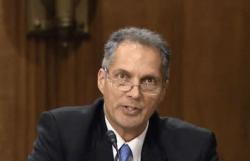

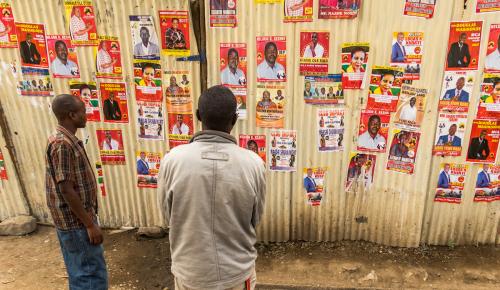
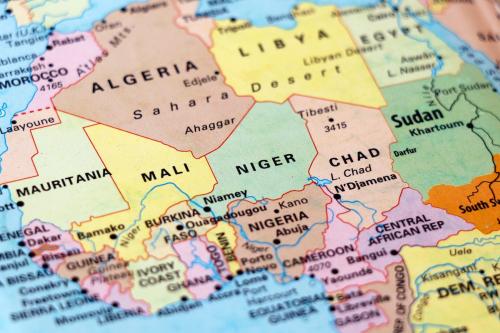

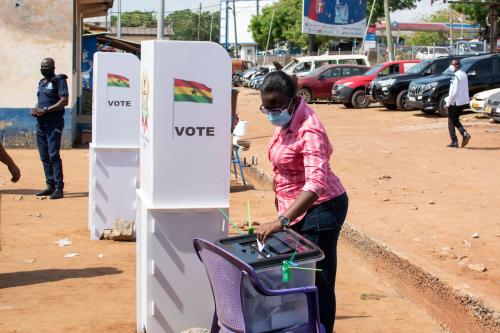
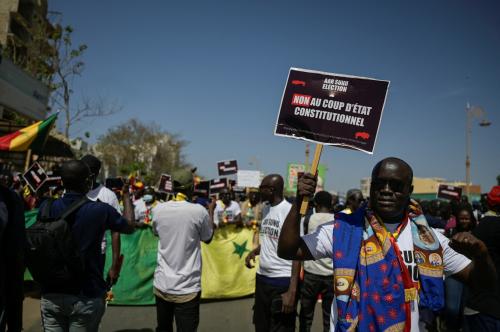
Commentary
Africa’s prosperity tied to investing in democracy
July 25, 2024